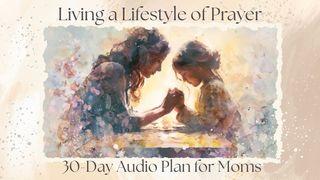Genesis and WorkSample

Making Things Right after Ethical Failure
From the Theology of Work Bible Commentary on Genesis
Jacob’s deceit towards his family members led to a climactic moment in his life when he was finally forced to face the consequences of his actions. Escaping from one family member he had wronged and on the way to meet another who might seek vengeance on him, Jacob spent a night wrestling with God. He emerged a changed man—more broken, yet spiritually stronger, and finally ready to reconcile with others.
After Jacob unethically obtained his fortune and separated his business interests from those of his father-in-law, he saw that coming to an agreement with his estranged brother Esau might be a way to legitimize his future position. But given the harm Jacob had done to Esau by tricking him out of their father’s birthright, Jacob expected the negotiations to be tense. Wracked with fear that Esau would come to the meeting with his four hundred armed men, Jacob split his family and animals into two groups to help ensure some measure of survival. He prayed for protection and sent an enormous gift of animals ahead of him to attempt to pacify his brother.
The night before his reckoning, Jacob was visited by a shadowy figure to surprise him. God himself attacked Jacob as a strongman, against whom Jacob was forced to wrestle all night. God, it turns out, is not only the God of worship and religion but the God of work and family enterprises. In this case, God pressed his advantage over Jacob to permanently injure Jacob’s hip. Yet Jacob, in his weakness, would not give up wrestling until his attacker agreed to bless him.
After years of intense struggle with people, Jacob finally faced that he was truly struggling with God. Jacob had refused to trust God enough to deal honestly with others. On this fateful night, Jacob finally faced his struggle with God, and through intense wrestling, he received a blessing of newness. God gave Jacob a new name, Israel. And indeed, Israel’s future from that point on was changed. The once-ominous meeting with Esau, which followed in the morning, contradicted Jacob’s fearful expectation in the most delightful way. Esau ran to Jacob and embraced him. Esau graciously tried to refuse Jacob’s gifts, though Jacob insisted he take them. A transformed Jacob said to Esau, “Truly to see your face is like seeing the face of God” (Genesis 33:10).
The ambiguous identity of Jacob’s wrestling opponent highlights the inseparable elements of Jacob’s struggling with both God and man. Jacob models truth at the core of our faith: our relationships with God and people are linked. Our reconciliation with God makes possible reconciliation with others. Likewise, in human reconciliation, we come to see and know God better. The work of reconciliation applies to families, friends, churches, companies, even people groups, and nations. Springing from God’s initial promise to Abraham, this is a blessing that ought to touch the whole world.
Prayerful Reflection: How does this apply to your work?
Scripture
About this Plan

In this complete Bible Study on Genesis, learn how this book of the Bible applies to your daily work.
More
We would like to thank the Theology of Work Project for providing this plan. For more information, please visit: www.theologyofwork.org/devotions
Related Plans

Gratitude and Generosity at Work

Advent: Waiting for Love

When You Need God Most: 30 Days of Life-Changing Prayer

Living a Lifestyle of Prayer: 30-Day Audio Devotional for Moms

Doing Chores - Can Helping Around the House Draw Us Closer to God? God in 60 Seconds

BibleProject | One Story: Foundations of the Bible

A Gift for All | 5 Christmas Reflections About Jesus

Built to Last

SEVEN
